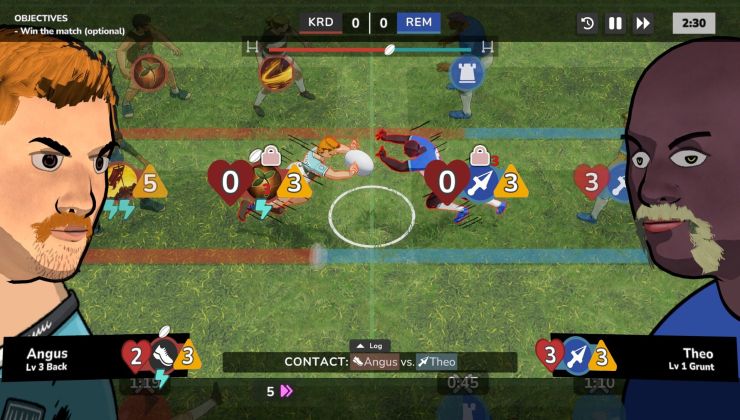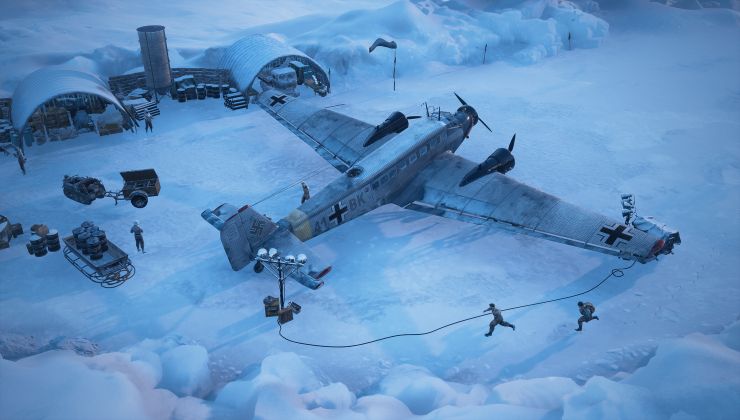The ongoing saga of modders versus Take-Two continues on, after some people behind the Grand Theft Auto fan projects "re3" and "reVC" got their work taken down from GitHub and then sued.
With the two projects, the developers recreated the game engines used for Grand Theft Auto III and Vice City, which were done through reverse engineering. There was a bit of back and forth as Take-Two sent a DMCA claim to have the projects taken down, a counter-claim was filed that put both back up and then Take-Two formally sent in the lawyers with the lawsuit to get payments in damages.
As expected here, the developers in question who are in the firing line have decided to attempt to fight back as reported by TorrentFreak who shared the PDF. A lot of it is just plain outright denials of what Take-Two are accusing in their argument. The main defence is trying to get it "constituted fair use under the Copyright Act" and that any copyrighted material included was to "allow for interoperability of software and fixing 'bugs'" and also that it was "transformative use".
Part of the counter-argument might not hold as much weight now though, as it mentions "for video games released over fifteen years ago". Recently, Take-Two put out the Grand Theft Auto: The Trilogy – The Definitive Edition. As it turns out, it's a true hot mess of bugs. Still, they're not the same versions and sold separately so it likely can still count.
Continuing, the defence does clearly mention how anyone using it would need a copy of each game (the projects did not include the data files). To that end, the defence mentions how it would "not affect the market for the complained of software" and in fact "would positively affect the market for the complained of software" and goes on to mention how previously Take-Two "showcased" some mods and even "released portions of its software" to the devs of Multi Theft Auto.
What a shame, can you imagine what they could have achieved if they worked together?
AFAIK the repo contained nothing owned or copyrighted by Take-Two, the reverse-engineering effort is clean room [...]
It wasn't clean-room, unfortunately, the team [decompiled Take Two/Rockstar's binaries](https://www.eurogamer.net/articles/2021-02-17-how-a-small-group-of-gta-fanatics-reverse-engineered-gta-3-and-vice-city-without-so-far-getting-shut-down-by-take-two) to get there.
...they're not the same versions and sold separately...Except they are not sold separately, because they completely removed those old GTAs from stores.
I'll be surprised if there's not precedent set for this exact court case.I did some brief research to try to answer this, but it seems most fan developers just accept defeat and don’t take on a major publisher in court.
That said, i believe copyright extends beyond the physical data (source code, etc).
That doesn't change my point....they're not the same versions and sold separately...Except they are not sold separately, because they completely removed those old GTAs from stores.
There was a recent ruling saying that fixing bugs was not a case of copyright infrinment.
Reverse ingeneering is protected under a law in itself to allow interoperability of software on hardware and under this law you can even break DRM to a certain extent.
At least, that's what I understand...
I still have the same opinion on this. Once the developer stops supporting the game, release the code under Open Source license, so the game could either live if there is a community around it or die, if it isn't good.Yes, but then how could you make money with it?
(I know the answer, and that open source doesn't exclude selling a product, but many bored lawyers and clueless executives have no intention of ever understanding this)
I still have the same opinion on this. Once the developer stops supporting the game, release the code under Open Source license, so the game could either live if there is a community around it or die, if it isn't good.Yes, but then how could you make money with it?
(I know the answer, and that open source doesn't exclude selling a product, but many bored lawyers and clueless executives have no intention of ever understanding this)
You will not have the assets, so you still need to own the copy (the developer could still sell the copies), but can use the open engine supported by community.
But in the case the developer is no longer exists, it should even open the assets itself.
EDIT: This should be something that is done by law, if nobody owns the rights it should be publicly accessible.
Last edited by Zlopez on 18 Nov 2021 at 1:50 pm UTC
I still have the same opinion on this. Once the developer stops supporting the game, release the code under Open Source license, so the game could either live if there is a community around it or die, if it isn't good.Some developers do, but that's really the choice of the developer or publisher.
Store the project on EU servers.Again, I'm not a lawyer but I'm pretty sure EU law doesn't cover this. This isn't fixing bugs, or anything of that sort. This is a copy of the game, and according to a post above, it was done by reverse engineering the game.
There was a recent ruling saying that fixing bugs was not a case of copyright infrinment.
Reverse ingeneering is protected under a law in itself to allow interoperability of software on hardware and under this law you can even break DRM to a certain extent.
At least, that's what I understand...
EDIT: This should be something that is done by law, if nobody owns the rights it should be publicly accessible.Hmm.
I still have the same opinion on this. Once the developer stops supporting the game, release the code under Open Source license, so the game could either live if there is a community around it or die, if it isn't good.Some developers do, but that's really the choice of the developer or publisher.
I give them my salutations and I'm trying to support them by buying the game :-)
Good luck to the teams behind re3 and reVC - it should be obvious how that has to play out, but unfortunately, judges/laws/courts and common sense are not always the best of friends :/
These guys did nothing wrong. It may or may not fall into fall use under the DMCA, but they did nothing wrong.
As said the Definitive Trilogy is utterly crap, overpriced and a lazy remake. Not better than original games with mods at the time. And they removed the possibility to buy the old ones, and of course you can't either buy only one Definitive game, you have to buy the Trilogy at once (obviously).
And this, from one of the most richer games company that made billions of dollars with the GTA series...
People shouldn't buy this new Trilogy but it seems they do.
These games are more than 16 years old, this is not acceptable, Rockstar doesn't respect the players.
Take one example: the PS5 Demon’s Souls is a remake of a game that was released in 2009, and the thing is, this is one of the most beautiful games released at the moment.
Another good example is the Mafia: Definitive Edition, remake of the first game that was released in 2002.
It sucks, and the community version was better… but that doesn’t make it legal, and this doesn’t sound like fair use to me. (Hashtag not a lawyer)Just what constitutes fair use is frankly kind of hazy. I mean, I work in an academic library, and I scan bits of books for students to use, that they use under academic fair use. So OK, how much of a book is OK to scan? Turns out there isn't actually any direct legal basis for our practice. Everyone in academia uses a rule of thumb that says one chapter or 10% of a book, whichever is more, is OK . . . and since everyone's been doing that for decades without being hassled, we all figure it would stand up pretty well in court if it got challenged--like, if that was a problem, why did you wait until now to complain? But it's not actually in the law, it's just something that got adopted. And that's about the simplest case there is, so how fuzzy anything more complex must be I don't want to think!
Store the project on EU servers.Good idea, but too late. Filing a DMCA counter-claim makes you susceptible to US copyright law because you have to accept their terms and courts.
There was a recent ruling saying that fixing bugs was not a case of copyright infrinment.
Reverse ingeneering is protected under a law in itself to allow interoperability of software on hardware and under this law you can even break DRM to a certain extent.
At least, that's what I understand...
Last edited by Milanium on 18 Nov 2021 at 8:36 pm UTC














 How to set, change and reset your SteamOS / Steam Deck desktop sudo password
How to set, change and reset your SteamOS / Steam Deck desktop sudo password How to set up Decky Loader on Steam Deck / SteamOS for easy plugins
How to set up Decky Loader on Steam Deck / SteamOS for easy plugins
See more from me